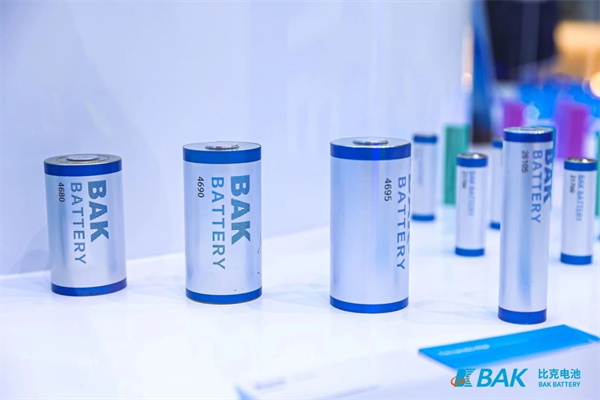
At the recent 5th Starting Point Two-Wheeler Battery Swap Conference in Shenzhen, Teng Xiaobo, BAK Battery's Cell Technology Director, delivered a keynote speech titled "High-Performance Cylindrical Battery Technology and Light-Power Applications." Addressing core challenges in the electric two-wheeler market, Teng showcased BAK Battery's breakthrough large-format cylindrical full-tabless battery technology and its meticulously crafted product matrix – prioritizing safety, performance, and cost-effectiveness – injecting robust technological momentum into the global electric two-wheeler industry's upgrade.
Teng Xiaobo detailed BAK Battery's core competitive advantage: its cylindrical full-tabless technology. This revolutionary structural optimization delivers comprehensive performance leaps:
Significantly reduced internal resistance (>80% decrease): Drastically improving energy efficiency.
Effectively lowered temperature rise (>80% reduction): Markedly enhancing battery safety.
Multi-fold leap in cycle life: Extending the usable lifespan of the battery.
Regarding safety, the unique venting technology enables full-tabless cylindrical cells to pass multiple stringent safety tests, achieving the "zero thermal runaway" target. Crucially, these performance gains come without cost penalties. Analysis shows that within the 15-50Ah capacity range, cylindrical cells outperform prismatic and pouch cells in production efficiency, lower manufacturing costs, and higher production yield.
Leveraging this robust full-tabless foundation, BAK developed three large cylindrical cell products tailored to distinct global light-power market demands:
PRO-M Series (46-Series): Designed for the cost-sensitive domestic Chinese e-bike market with stringent "GB Standard" safety requirements. This series supports 25-minute fast charging and offers a cycle life exceeding 2000 cycles. Meeting the highest safety standards is paramount, with 100% compliance across multiple GB standards (GB43854, GB36672, GB38031), ensuring ultimate safety while optimizing design for cost-sensitive markets.
High-Performance E-Moto Solution (46-Series 33Ah): Targets the premium e-motorcycle market demanding extreme power, extended range, and top-tier user experience. Utilizing material innovations like high-nickel NMC and silicon-based anodes combined with advanced full-tabless cylindrical structure, this cell achieves 275Wh/kg energy density, >2000 cycle life, ultra-low internal resistance (0.8mΩ), and 15-minute super-fast charging – providing the power foundation for ultimate riding performance.
Overseas Value Solution (46-Series 23Ah): Developed for international markets prioritizing value. It supports 20-minute fast charging and over 2500 cycles. Compared to pure ternary systems, costs are reduced by 20%, offering outstanding value. It maintains excellent low-temperature discharge performance and meets the same "zero thermal runaway" safety standard.
"As a major breakthrough in cell structure innovation," Teng Xiaobo emphasized in his speech, "BAK's full tabless cylindrical technology delivers low internal resistance, high safety, long life, and superior fast-charging and thermal performance – perfectly meeting the stringent battery requirements for light-power applications like electric two-wheelers."
By addressing the core challenges across diverse light-mobility segments, BAK has meticulously crafted its three core product series – prioritizing Safety, Performance, and Value. This strategic portfolio aims to provide the most suitable solutions for global customers, collectively accelerating the electrification transformation of light transportation.
Next:LFP Batteries: A Responsible Path Forward for EV Manufacturers
Previous:The Importance of Lithium Battery Recycling: A Critical Step Toward a Green, Low-Carbon Future